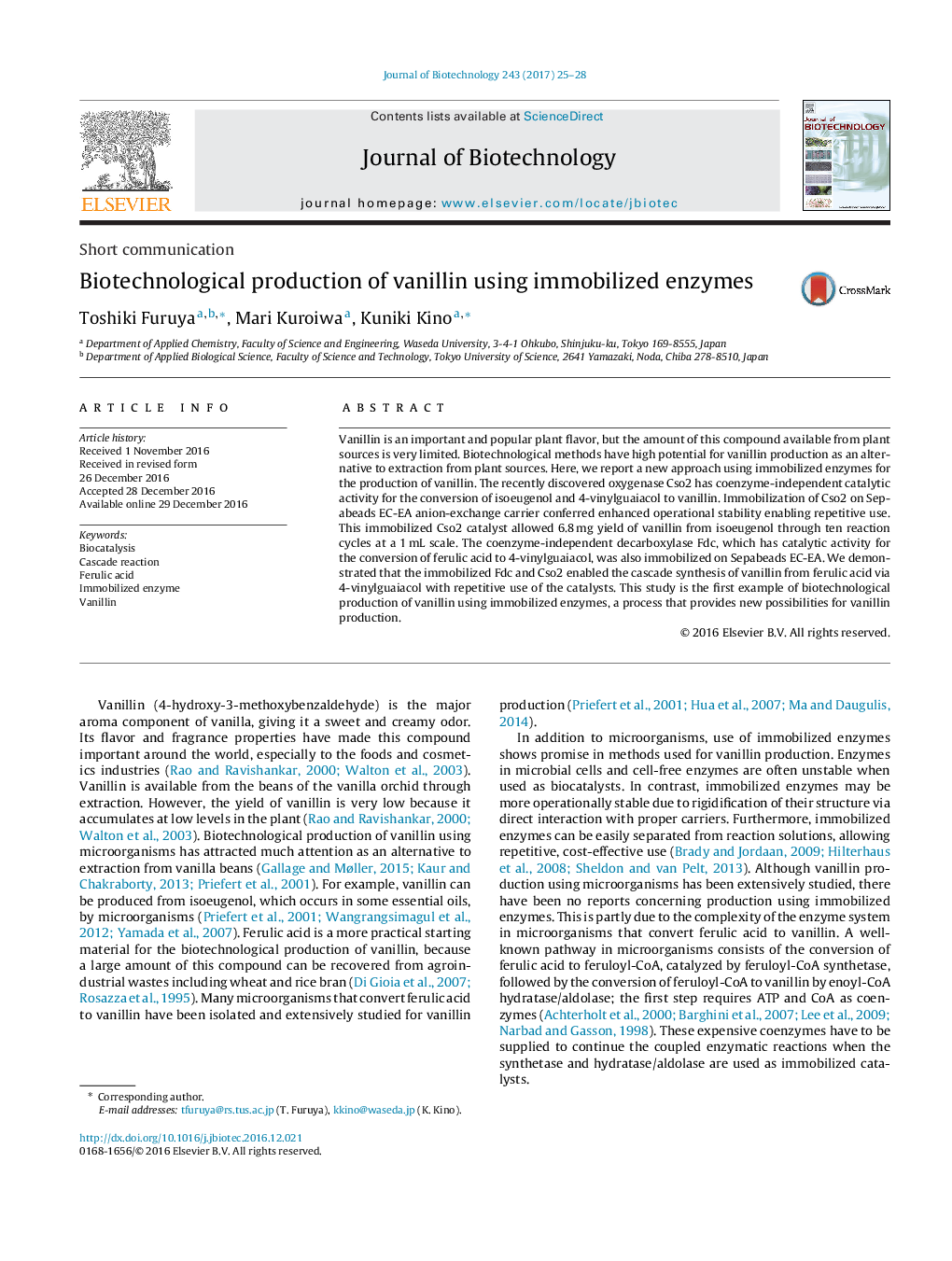| Article ID | Journal | Published Year | Pages | File Type |
|---|---|---|---|---|
| 6452151 | Journal of Biotechnology | 2017 | 4 Pages |
â¢A new immobilized enzyme process for vanillin production was investigated.â¢The coenzyme-independent oxygenase and decarboxylase were used.â¢The oxygenase and the decarboxylase were immobilized on an anion-exchange carrier.â¢The immobilized enzymes efficiently produced vanillin.
Vanillin is an important and popular plant flavor, but the amount of this compound available from plant sources is very limited. Biotechnological methods have high potential for vanillin production as an alternative to extraction from plant sources. Here, we report a new approach using immobilized enzymes for the production of vanillin. The recently discovered oxygenase Cso2 has coenzyme-independent catalytic activity for the conversion of isoeugenol and 4-vinylguaiacol to vanillin. Immobilization of Cso2 on Sepabeads EC-EA anion-exchange carrier conferred enhanced operational stability enabling repetitive use. This immobilized Cso2 catalyst allowed 6.8Â mg yield of vanillin from isoeugenol through ten reaction cycles at a 1Â mL scale. The coenzyme-independent decarboxylase Fdc, which has catalytic activity for the conversion of ferulic acid to 4-vinylguaiacol, was also immobilized on Sepabeads EC-EA. We demonstrated that the immobilized Fdc and Cso2 enabled the cascade synthesis of vanillin from ferulic acid via 4-vinylguaiacol with repetitive use of the catalysts. This study is the first example of biotechnological production of vanillin using immobilized enzymes, a process that provides new possibilities for vanillin production.
